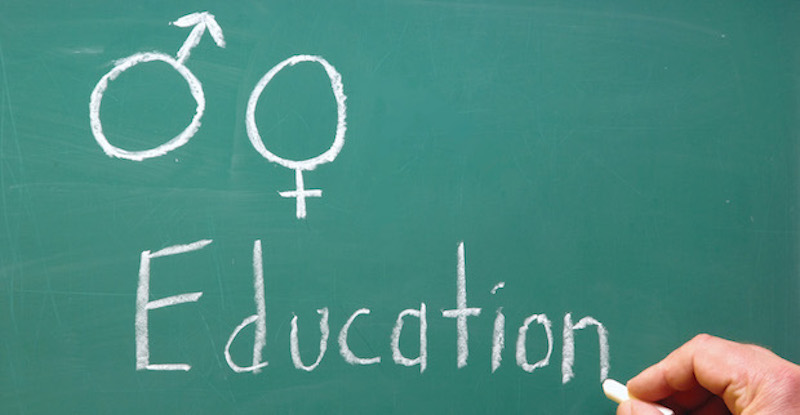
The current state of sexual education in our country leaves young adults frighteningly vulnerable. According to the Guttmacher Institute, 47% of male and 53% of female teens report that they did not receive any formal instruction regarding contraception before their first sexual encounter. These numbers are even scarier considering they’re on the rise. Despite some improvements in sex education, like that which occurred between 2006 and 2010 when curriculum included birth control methods, the percentage of young adults receiving comprehensive sexual education has plummeted from 2011 to 2013. Further, those receiving a “just say no to sex” education has increased.
Somehow we are moving backwards and turning our backs on the health and rights of adolescents. As it currently stands, abstinence only sex education leaves young adults at higher rates of STIs and unplanned pregnancy, while doing nothing to reduce or delay premarital sex. As a society, we must educate and respect the rights of our youth. This can happen in many forms. Among other things, comprehensive sex education should go beyond simply teaching teens about contraceptive methods for heterosexual sexual intercourse by legitimizing sexual experiences that aren’t strictly penile-vaginal intercourse, opening dialogue about sexual orientation and anti-bullying, and creating an environment in which students that may feel alienated are now free to ask questions. Comprehensive sexual education should go beyond simply trying to prevent teenage pregnancy by encouraging use of long acting reversible contraception like an IUD or implant, and instead present all the options without bias. Teaching students about reproductive justice and the United States’ history of coercive contraception and sterilization practices couldn’t hurt either. Not to mention the importance of education about consent, rape culture, domestic violence and abusive relationships. These are discussions we should be having with our young adults — these are conversations that they, that I, want to be having. So why aren’t we?
Growing up, I was taught that being Jewish meant asking questions. We ask them of our rabbis, of our sacred texts, and of the texts written that question those. When I asked my mom, “What’s the big secret?” with regard to sexual education, her answer was a detailed children’s book with the question as a title and pages filled with answers.
In Pirkei Avot, Hillel taught: "A person who is [too] shy [to ask questions] will never learn, and a teacher who is too strict cannot teach . . . and in a place where there are no human beings, strive to be a human being" (2:5). I have never been accused of being shy, but my story is not everyone’s story. There are millions of teenagers who don’t feel secure enough to ask questions, a major impediment to learning. There are teachers that long to help them, but are limited by laws and policies that are strictly abstinence only, and so they struggle to teach. We must understand that the human rights of bodily autonomy, family planning, and healthy sexual lives are being denied to adolescents. Then we must fix it.
This means speaking up for legislation that promotes comprehensive sexual education like the Real Education for Healthy Youth Act, which is set for reintroduction in the 115th Congress. In addition to promoting inclusive sex education programs, this bill would also provide funds for training teachers and prohibit use of medically inaccurate facts. While waiting for this bill to become law may take awhile, striving to be human, as Hillel positions it, means that parents should talk to their children about healthy sexual relationships and all that entails. It means friends should reach out to each other with questions, and work together to find answers. It means we must show up at a school board meeting and insist that comprehensive sexual education matters. It means when someone asks, “What’s the big secret?” our answer must be, “I’m glad you asked.”
Chloe Bakst is a rising junior at the University of Michigan, where she is majoring in Public Health with a minor in Gender and Health. This summer, she interned with the National Council of Jewish Women.
Related Posts

Remarks from Rabbi Eliana Fischel at Jewish Gathering for Abortion Access

Teens from North Carolina Speak About Environmental Justice

